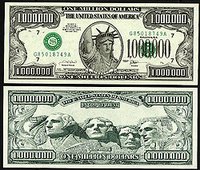
A few days ago a group of retired generals (including two former ISI chiefs), sitting and former parliamentarians and academics wrote a letter to General Musharraf.
A similar letter was also sent to Shaukat Aziz and copies were forwarded to former prime ministers Benazir Bhutto and Nawaz Sharif, as well as to the leaders of all political parties represented in parliament.
The letter asked for the following:
- Disengagement of military from political power
- A separation between the offices of President and Army Chief.
- As the 2007 elections ‘would not be credible without neutral and impartial caretaker governments, both at the centre and in the provinces’, a genuine empowerment of the Chief Election Commissioner and the Election Commission of Pakistan was a prerequisite for the holding of transparent elections. For this purpose, it is necessary for the district administrations to be placed under the control of the CEC during the 2007 polls.
- All the political parties of the country learn from their past mistakes and commit themselves to strengthening democratic institutions and traditions so as to ensure the rule of law and good governance at all levels.
- All the political parties exercise restraint and respond positively to any offer of dialogue to make free and fair elections possible. As a sustained dialogue between the leadership of principal institutions and organisations was a vital prerequisite to ensure a peaceful, orderly transition to complete and authentic democracy.”
- All power groups refrain from taking extremist positions and hurling threats and charges against each other.
- Pakistan to be a decentralized federal state, by the granting of genuine political, financial and administrative autonomy to the provinces.
Now the question that occurred to me (and to most people I would imagine) is: Why did these gentlemen, many of whom were or have been close associates of Musharraf, take this rather drastic and very public step?
After giving it some thought I came to the conclusion that it was because these people are genuinely convinced that the current mood in Islamabad is to rig the 2007 elections on lines similar to what took place in 2002.
What these people, I believe, seriously fear is that the rigging of the 2007 elections will backfire and set off a protest movement that will quickly get out of the control of the democratic forces and pass into the hands of organized extremists. And woe betide Pakistan then.
As a thought-provoking op-ed in The News (which your Blogger recommends as a 'must' read) points out today:
Given the Talibanisation of tribal areas, and extension of Taliban’s influence in the adjoining settled districts, continuing military operation and insurgency in the Baloch areas, deepening alienation of Sindhis, sustenance of jihadi and sectarian outfits, overall exclusion and sufferings of the general masses and increasing isolation of and resentment against the military rule, Pakistan presents a volcanic situation that can potentially burst out in many directions and at numerous levels. In most essential terms, the country closely fits the bill of a failing state, if not a failed state already. Despite joining the war against terrorism, the menace of terrorism is still so powerful that the security institutions have failed to stem their nefarious designs not only within the country, but also on both international fronts, i. e., on our borders with Afghanistan and India.
Now the problem is that most of Musharraf’s current list of ‘loyal’ supporters (Ch. Shujaat, Shaukat Aziz et al) have much to lose if the 2007 elections are genuinely transparent. They will therefore vociferously insist, for the sake of their own political survival, that he hang on to his uniform and engineer the elections their way.
I believe it was simply to counter these ‘heroes’ of PML (Q) that this group of people decided to write the letter to Musharraf, as well as, perhaps open it for public discussion.
___________________________________________________
Here is an American news take on the letter:
The latest shot came from a prestigious grouping of retired generals, diplomats, academics and ex-intelligence chiefs who had told Musharraf that it was time to disengage the military in politics.
Democracy will only be authentic, their letter said, when there is a "real separation" of powers.
Musharraf might be forgiven for seeming too preoccupied to bother with democracy. These days it seems there's trouble everywhere he turns.
He's stationed 70,000 Pakistani soldiers in the restive tribal belt, but that hasn't stopped militants loyal to the Taliban and Osama bin Laden from taking control of four of its seven districts.
They've imposed their rigid brand of Sharia Law: holding public executions, forcing men to grow beards, and openly recruiting soldiers to fight U.S. troops next door in Afghanistan, where suicide attacks and roadside bombs have become an almost daily occurrence
An additional 40,000 or so Pakistani troops are tied down in western Baluchistan, fighting a separate rebellion by ethnic Baluch tribesmen.
Then there's archrival India to the east, still bristling after a terrorist attack on the Mumbai rail network that killed more than 200.
If that isn't enough, Pakistan's stock market has crashed, monsoons have flooded major cities, and power shortages have thousands rioting on the streets of southern Karachi.
"I predict tremendous instability in the coming year," one Western diplomat said. "And there will be more violence."











